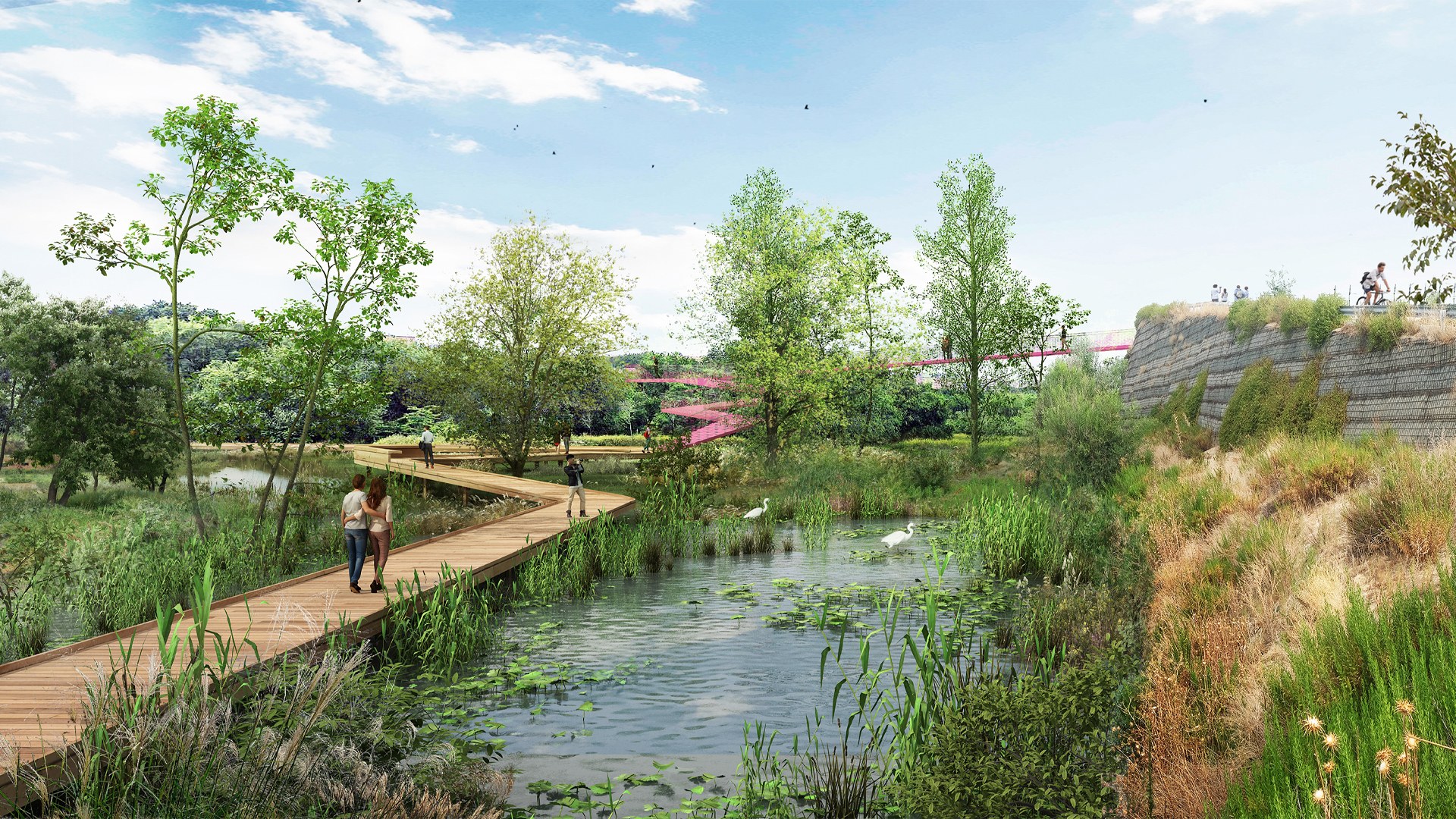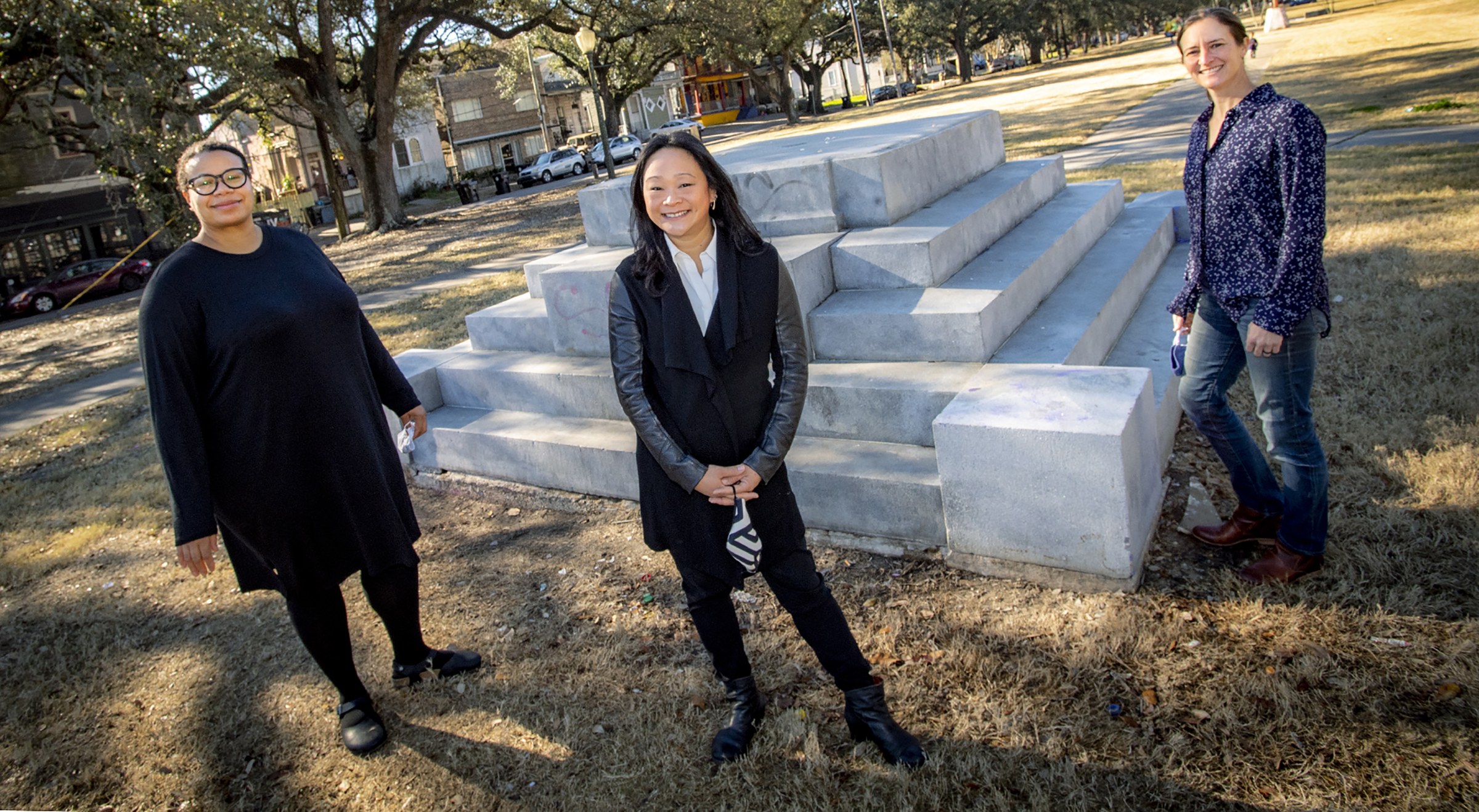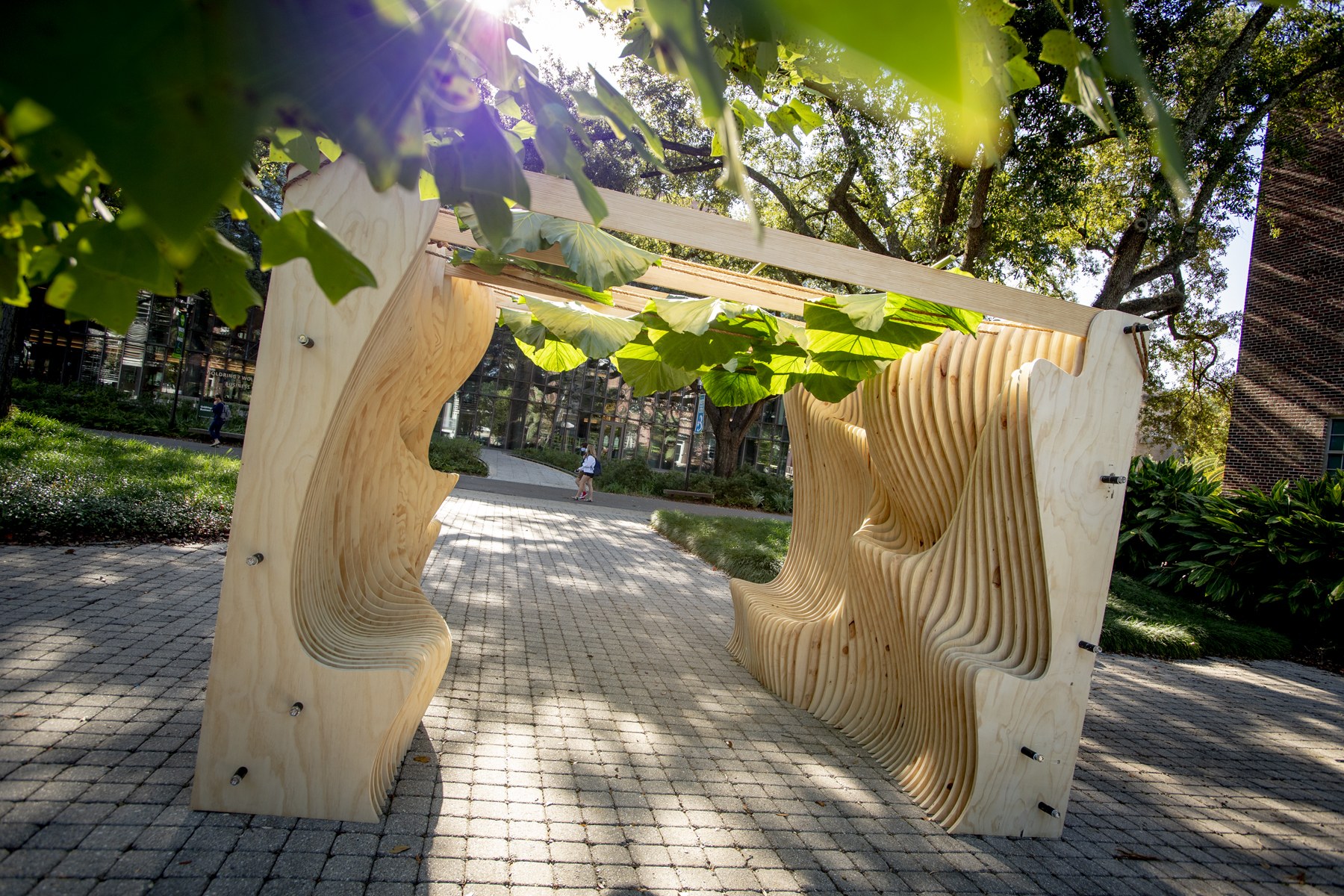Faculty win international design competition for urban forest

january 27, 2021
Margarita Jover, Associate Professor of Architecture, and Iñaki Alday, Dean of Tulane School of Architecture, recently won an international design competition through their practice aldayjover architecture and landscape. The firm’s proposal has been chosen as the winner of the Madrid Metropolitan Forest International Contest, Lot 4 "The Southern River Parks."
A jury made up of 24 experts selected aldayjover's proposal, titled "Manantial Sur, Regenerated Infrastructure," for being a "complete project in all its components that has generated debate around the role of water, forestry and agriculture."
The southern area of Madrid, along the Manzanares River, is a place of infrastructures that have divided the territory; but it is also a space of opportunities and full of latent resources: hydrological, historical, agricultural, horticultural, archaeological and social to be enhanced and to re-sprout.
aldayjover changed the discourse in the relationship between rivers and cities by designing the first floodable public spaces, conceived as hybrid hydraulic infrastructures, at the end of the 90s. In the Manantial Sur (translated to English from Spanish means "South Spring") of the Metropolitan Forest, aldayjover re-conceptualizes the artificial hydrology of the region, complementing the sources of fresh water from the Sierra de Madrid with the new water springs – the wastewater treatment plants. This concept, initially developed for Delhi (Yamuna River Project, with Pankaj Vir Gupta), will generate a new landscape that manages water and nature, creates microclimates, promotes healthy habits and is the backbone of a more equitable and democratic society based on the right to quality public space.
Manantial Sur is a proposal for social and ecological growth through "resprouts." The social "resprout" recovers pedestrian connectivity and creates civic centralities. The ecological "resprout" promotes the emergence of biodiversity and a large monumental forest based on better use and management of water resources. The "resprout" of mobility infrastructures comes from understanding them as broad ecological corridors that include slow mobility and creates an agro-forestry and social mosaic.
Developed from a transdisciplinary perspective, aldayjover in collaboration with ABM Consulting, IRBIS ecological consulting, Paisaje Transversal, Benedicto Gestión de Proyectos, BIS structures and fdTOP has led this proposal in Madrid's green belt, which will become the first major metropolitan intervention to mitigate the effects of climate change in the capital of Spain. A Forest that was born attentive to the increasingly pressing social and ecological challenges, using water as a driving force for planning and design.
To learn more about the Metropolitan Forest of Madrid competition and its winners, read the article in Metalocus magazine.
Related

Tulane study to examine role of racial injustice in design of memorials and monuments
Researchers from the Tulane University School of Architecture and the School of Science and Engineering are embarking on a project that they hope answers questions about racial injustice and its impact on the design of urban spaces, monuments and memorials.

Sukkah in the age of coronavirus
Every year, for the past 11 years, students in the Tulane School of Architecture have built a sukkah, an open-air hut-like structure under which Jews celebrate Sukkot, a week-long fall harvest festival.